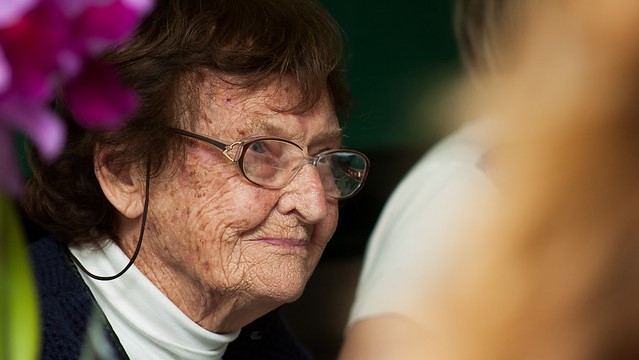The agricultural engineer Ana Maria Primavesi, global leader in agroecology and a pioneer of the area in Brazil, died this Sunday January 5 due to heart complications. The hundred years of the researcher, born on October 3, will be celebrated in 2020. Primavesi defended the understanding of the soil as a living organism and was responsible for advances in the study of the ecological management of the soil.
The author participated in the second National Agrarian Reform Fair in 2017 in Sao Paulo, where she discussed the relationship between humans and the environment. “Without nature we will no longer exist, it is the base of our life. We must fight for land, fight for the plants, fight for agriculture, because if we do not live within agriculture, we will no longer exist. Those who continue without land, without agriculture are not living,” she declared.
Trajectory
Primavesi was born and raised in Austria, where she first learned about the issue with her parents who were agriculturalists. She was persecuted by the Nazis, and was imprisoned in a concentration camp during the Second World War.
In the 1950s, she came to Brazil where she began her academic career and her militant organizing. In this period, the so-called “Green Revolution” was responsible for disseminating the new agricultural practices that would lead to the rampant growth of agro-industry in the United States and in Europe.
In Brazil, Primavesi was a professor at the Federal University of Santa Maria, where she helped organize the first post-graduate course in organic agriculture.
She was also a founder of the Association of Organic Agriculture and through her career received a series of awards, like the One World Award, of the International Federation of Organic Agriculture Movements (IFOAM).
In an interview with Brasil de Fato in 2017, Carin Primavesi Silveira, daughter of the writer, spoke about the resistance of her mother throughout history to challenge the logic of capital in agriculture.
“She had a lot of resistance. She was attacked a lot. Now, what has happened? The evidence is what nature is showing, because people cannot be against nature, we depend on it. We have to work in communion with nature,” she said.
Published work
Primavesi published several books including “The Convention of Wind – Agroecology in Stories,” “Guide to Living Soil,” and “Ecological Guide of Plagues and Diseases.”
Agronomist Virgínia Mendonça Knabben wrote a biography of Primavesi, “Ana Maria Primavesi – Stories of Life and Agroecology.”
Tributes
On social media, the federal deputy João Daniel, Workers’ Party in the State of Sergipe, declared: “A great scholar, who loved nature, took care of life, will always be present and deserves many tributes. She will always be with us.”
João Paulo Rodrigues, leader of the Landless Rural Workers’ Movement (MST), lamented the death of the writer, “It is with great sadness that we, the MST, receive the news of the passing of our dear Ana Maria Primavesi, our best scholar of soil and Agroecology, the best soil specialist in the world. Go with peace and the MST will continue to defend your legacy, taking care of our land.”
In a note, the MST affirmed that in phrases like “rich or poor soil does not exist; only living or dead,” the researcher “taught men and women of the countryside and, with this, planted seeds in every corner of this earth.” The movement says that it will “continue her legacy and her teachings in the struggle for Popular Agrarian Reform and for agroecology.”





